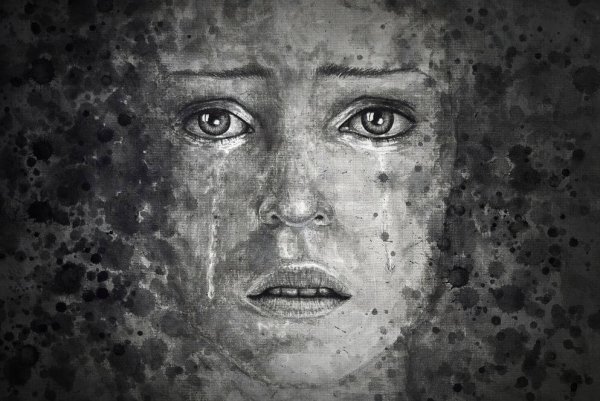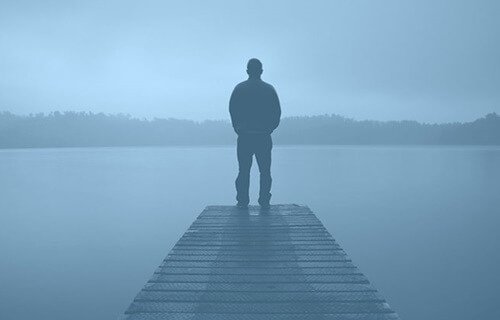(Stillness in the Storm Editor) Fear is an ancient emotion that has a great power to change our state of consciousness. Fear helps us identify threats and draws our attention to things so we can gain knowledge about them. But when we can’t channel the energy of fear productively, this emotion can breakdown causing us a lot of problems. The Deep State know this, and they use fear as a tool of control. But with self-knowledge, you can defend yourself by learning how to control your fears.
Primal fears appear to be evolutionarily developed in that they point to survival mechanisms. Our animal cousins faced a lot of intense situations in the past, and the archetypes of those situations, the same challenges met over and over again, became pre-programmed aspects of our neurology.
For example, fear of abandonment is one such primal fear. It addresses the fact that most living creatures need their social group to survive. Once the fear of abandonment has been triggered, a person feels hyper self-conscious. Why might this be the case?
Because if one has been abandoned by their social group, it could be because they did something wrong. They might have violated a taboo or moray, which means in order to get back in, they have to self-reflect and change. Thus, the response to abandonment often results in a catastrophic self-appraisal moment leading to a strong urge to change so as to gain acceptance again.
Whether or not we like this feature of biology we can discuss another time. The point is that these responses are hardwired or builtin to the human organism, passed down from our animal ancestors. If we gain knowledge of them, then we can develop techniques to transcend making us feel alert instead of paralyzing fear.
Do you think that maybe the Deep State learned about these builtin primal fears and developed social tools to manipulate people into complying with their agenda?
Think about it. If you fear abandonment, you go within, seeking to change yourself to fit in again. What happens when the social group you’re trying to fit into is fundamentally sick and deranged?
“It is no measure of health to be well adjusted to a profoundly sick society.” ~ Jiddu Krishnamurti
This is a serious dilemma.
Skipping a lengthy psychological argument, you’ll end up changing yourself to match the sick society so you can fit in again. That’s how important social acceptance is. As proof of this, read The Gulag Archipelago, written by Aleksandr Solzhenitsyn. He survived the Soviet genocide, describing how normal people would quickly become immoral tyrants to comply with the state. Then there are the Milgram experiments which showed ordinary people can be trained to inflict severe harm and even death by seeking acceptance from an authority figure.
We are social creatures. When faced with the prospect of being cast out of your social group, you’ll probably do anything you can to regain acceptance, including compromising your morals, integrity, and self-worth.
All the Deep State has to do is make society fundamentally immoral, unfair, and non-functioning and those who want to make things better will be cast out as misfits by that unthinking fearful groupthink masses.
This is the situation we find ourselves in today.
By learning how to manage your primal fears, you not only make your life better personally, you make the world better through your example.
Have you ever seen a movie or heard a story where a brave person did the right thing even though the crowd raged against them? Aren’t these stories inspiring?
Someone like that has the ability to face their primal fear of abandonment, resting on their sense of righteousness as a way to support them in going against the group.
The lesson here is that knowledge, firmly secured through personal investment and contemplation, helps us work through our fears. Wisdom stays the hand of cowardice.
The Deep State know this and they want you to stay an unthinking pawn that never faces your fears. They want you to imbibe the distractions of modern life, wrapping the safety blanket of society around you so tightly, you never want to leave, no matter how bad it gets.
But once you see the truth, and notice that society isn’t a paradise, you’ll want to change things—and this makes you a threat to the status quo.
By facing your fears, you develop protection against them. And by joining up with other like-minded people, you form a new social group that helps each of you guard against fear.
Whether you have ambitions to make the world a better place, you want to share the truth with others, your simply want to live a good life, identifying, and facing your fears is a good idea.
– Justin
by Staff Writer, January 27th, 2019
The common fears that all humans share are related to physical preservation and the psychology of integrity and life. They’re universally true because they protect us and have strong biological and phylogenetic roots.
We should never forget the fact that fear is a healthy emotion. It’s part of your survival instincts. Some fears that we all share are perfectly reasonable. In fact, getting rid of them entirely wouldn’t be a good idea. That’s because if you get rid of them, you’d also get rid of your sense of risk and unnecessarily expose yourself to it.
The common fears that all humans share are related to physical preservation and the psychology of integrity and life. They’re universally true because they protect us. They have strong biological and phylogenetic roots.
Buy Book Invisible Heroes: Survivors of Trauma and How They Heal
You might not realize that fear is an impressive force. If you’re aware of it, you can use it to your advantage. People do some ridiculous things out of fear. Nevertheless, they can also channel that fear and use it to create incredible things. Perhaps religion, philosophy, and science are all responses to these fears. They’re just different ways to control them. But what are human beings afraid of in general?
1. Death
This fear is at the heart of our survival instincts. From a biological point of view, life finds a way. All organisms fight death. From a philosophical point of view, life is the greater good, all other goodness and virtue stem from it.
The fear of death also spawns a whole host of other fears that relate to the same idea. We have a fear of heights because we might fall and die. That’s the same reason why we’re afraid of planes, extremely high speeds, etc. These fears are common to all humans and cultures.

2. Loss of autonomy
In other words, we’re talking about being afraid of losing your freedom and the control you have over your actions and thoughts. From a symbolic point of view, this aspect is related to the fear of death. It implies the rejection of the idea of loss of self or the impossibility of uncovering said self.
A lot of other fears stem from this basic fear. For example, the fear of getting stuck under rubble or locked in places with very little oxygen. These are both situations in which a person’s freedom is very limited.
Buy Book Let’s All Be Brave: Living Life with Everything You Have
3. Loneliness: One of the five fears humans share
Even more than being afraid of being alone, one of the most common fears is losing touch with the world. Rejection or underappreciation put us on high alert. They’re signs that we might lose our connection with the group and be condemned and ostracized.
Not getting enough recognition and respect leaves an emotional wound that can take a long time to heal. Jealousy and selfishness are emotions that accompany this fear as well. If someone is jealous or envious, it’s because they just fear abandonment.

4. Fear of getting sick or being mutilated
Fear of mutilation is also related to our survival instincts. You need your body to function properly. That’s why we’re afraid of certain instruments such as needles and knives.
The fear of getting sick is also very common. We’re afraid to harm our bodies and don’t want to get in situations that could affect our health and well-being. That’s why we stay away from places that are dirty or wild animals, for example.

Buy Book Heal Your PTSD: Dynamic Strategies That Work
5. Humiliation
This is similar to being afraid of loneliness. However, in this case, the fear has more to do with feeling excluded and feeling humiliated in public. No one wants to feel left out or scorned by other people. People are afraid of feeling inferior or dependent.
This fear, as well as being afraid of loneliness, are of a social nature. The more open and diverse a society is, the less fear people experience. On the other hand, this fear is very common in strict and very traditional groups.
These five common fears have been around for a long time. Advertising and propaganda sometimes use these fears to manipulate us. However, human beings are also infinitely intelligent and creative. Thus, we can learn to deal with our fears so they don’t paralyze us and so we don’t succumb to outside pressure.
Stillness in the Storm Editor: Why did we post this?
Fear is one of the strongest emotions. It is designed to alert us to something we aren’t aware of so we can defend our prepare ourselves. Upon being informed, you swing your attention to see what’s happening, using the power of awareness to gain knowledge that helps you deal with the situation. Fear, directed toward an outcome we believe in, is empowering. The fear a mother feels when seeing her child come close to peril motivates her to take protective action. But when there is no way to direct fear toward a beneficial end, this ancient emotion becomes corrosive. The preceding article discusses fears that cause a person to break down, leading to trauma that could result in personality disturbances. Understanding these fears is extremely helpful, because, through the use of contemplation, one can think about when they might feel these fears, and develop a method of coping before calamity strikes. In this way, the paralyzing nature of these fears can be easily overcome by training one’s mind beforehand, much like a martial artist trains for a fight before they have to face a threat on the street. With this essential self-knowledge in hand, one can defend their mind from destructive fears, especially those used by the Deep State to control us. Without the ability to face one’s fears healthily, cowardice leads to life stagnation, and one loses the ability to remain in control of their being.
– Justin
Not sure how to make sense of this? Want to learn how to discern like a pro? Read this essential guide to discernment, analysis of claims, and understanding the truth in a world of deception: 4 Key Steps of Discernment – Advanced Truth-Seeking Tools.
Stillness in the Storm Editor’s note: Did you find a spelling error or grammar mistake? Send an email to [email protected], with the error and suggested correction, along with the headline and url. Do you think this article needs an update? Or do you just have some feedback? Send us an email at [email protected]. Thank you for reading.
Source:
https://exploringyourmind.com/five-fears-humans-share/

Leave a Reply